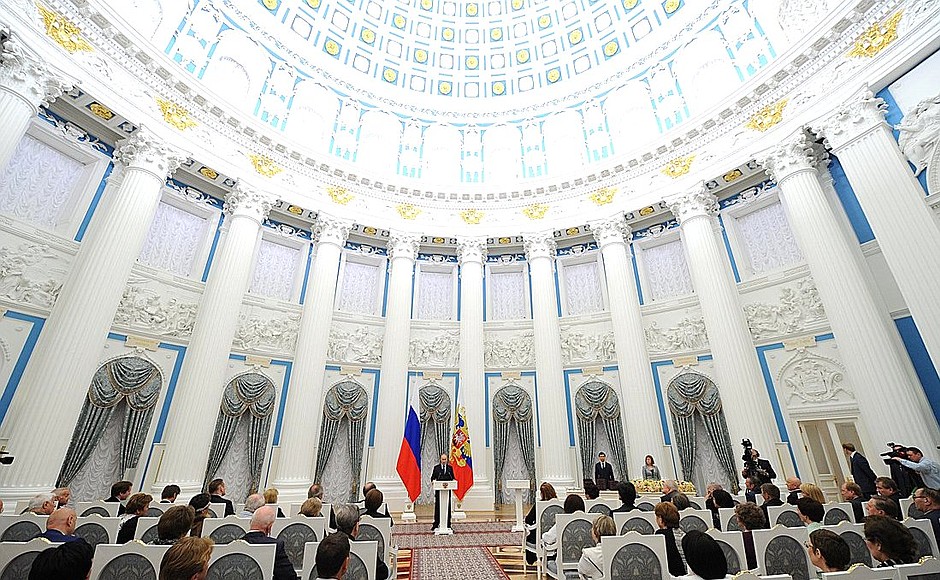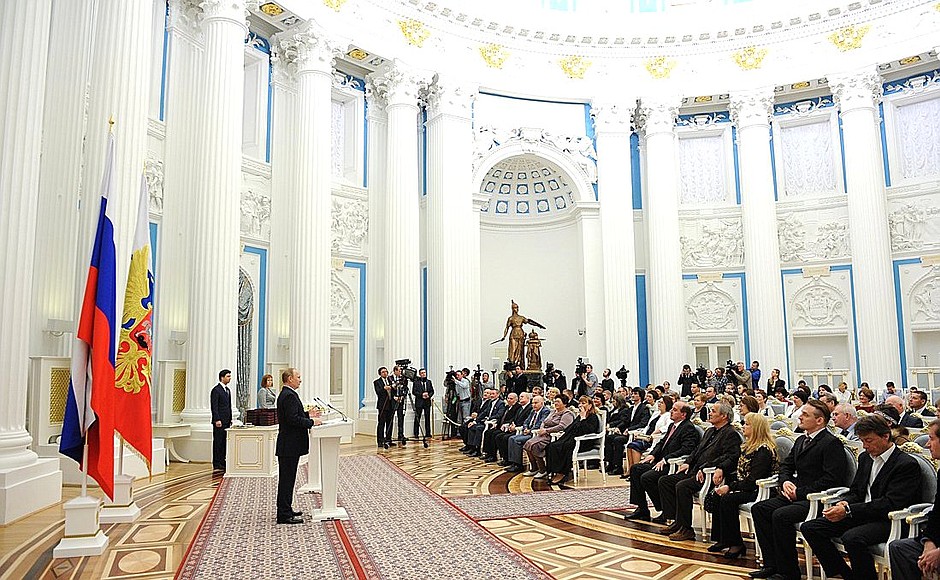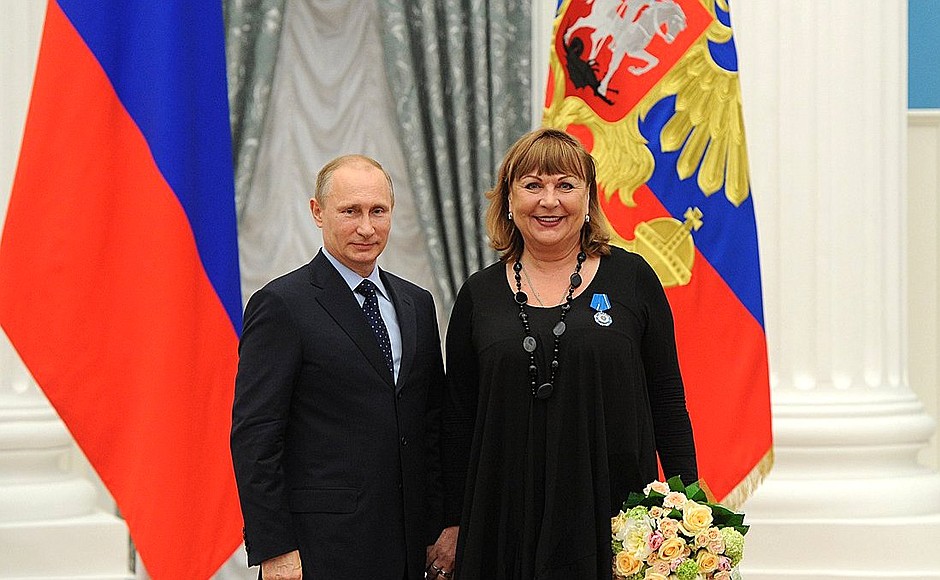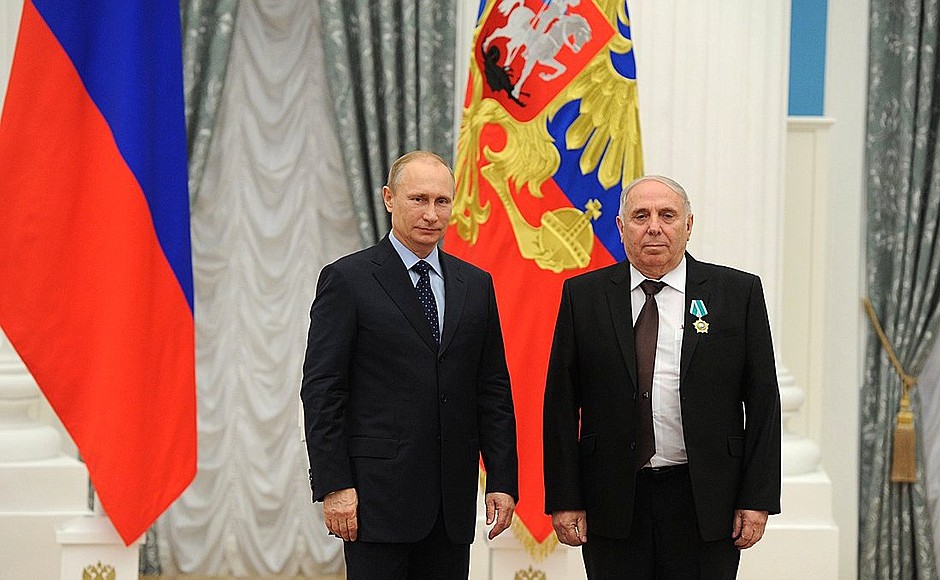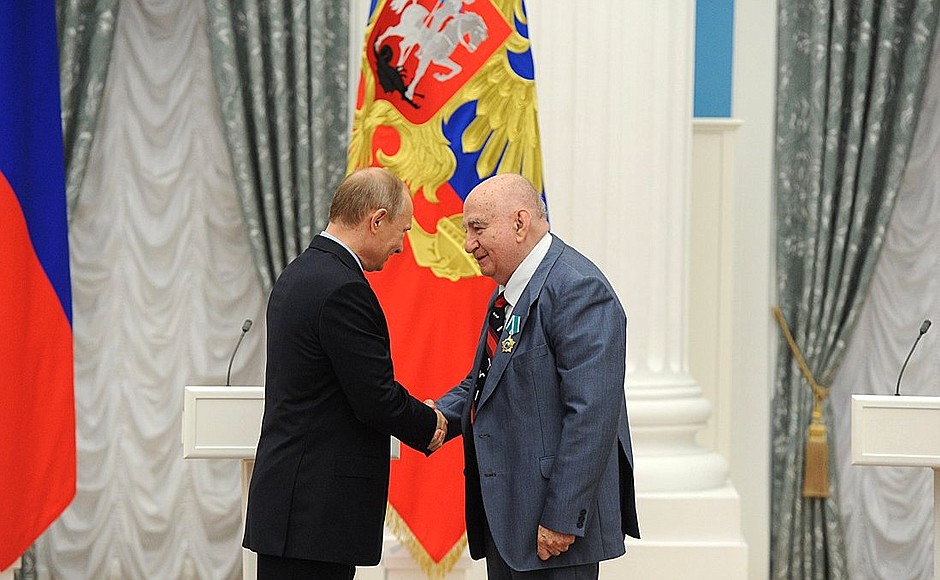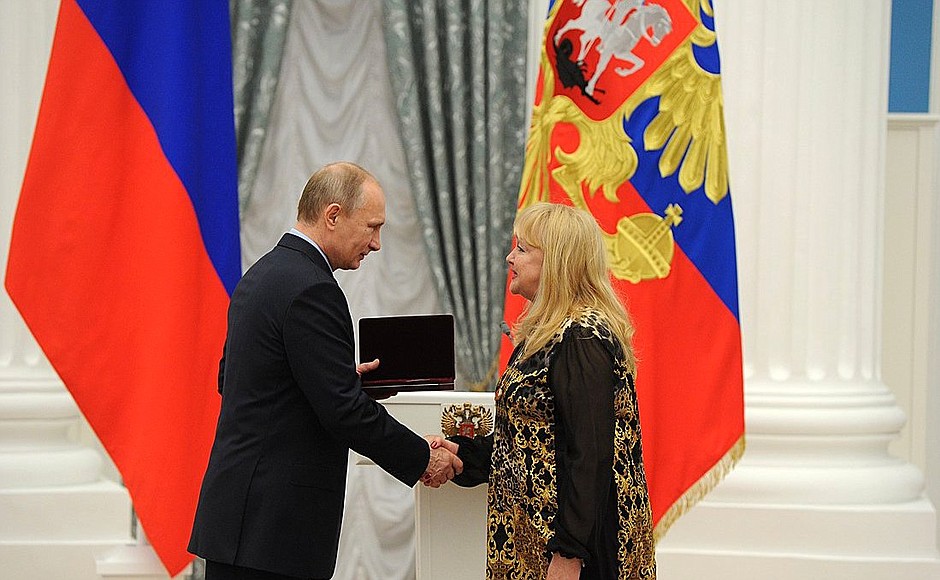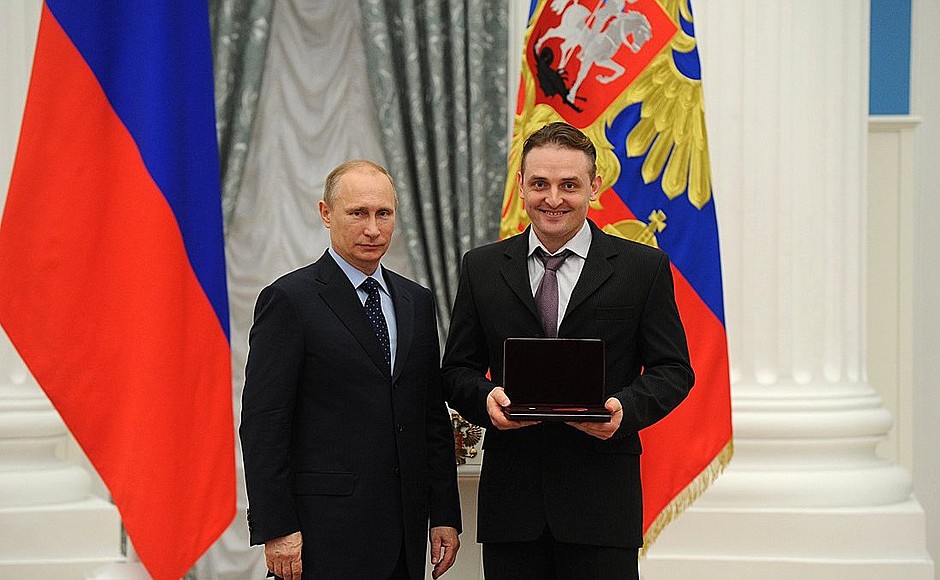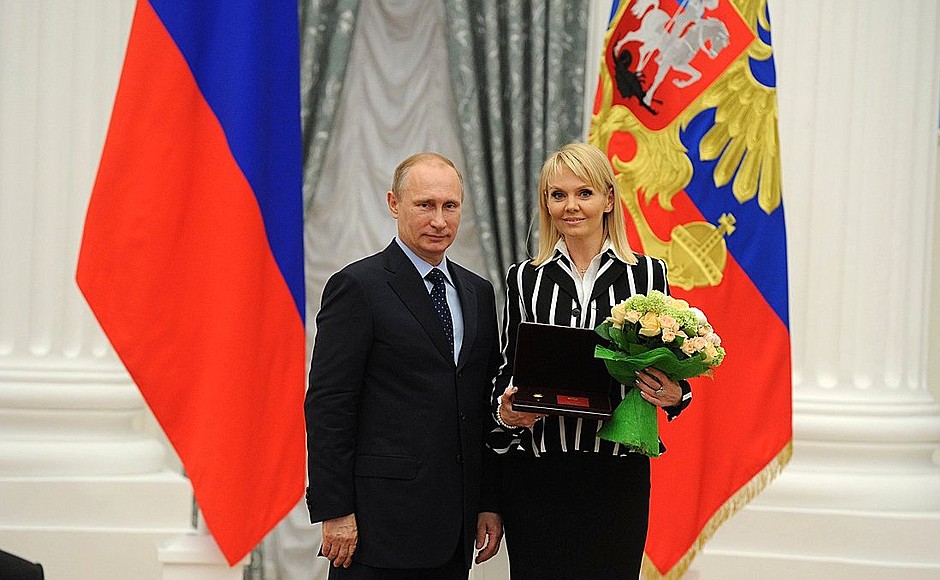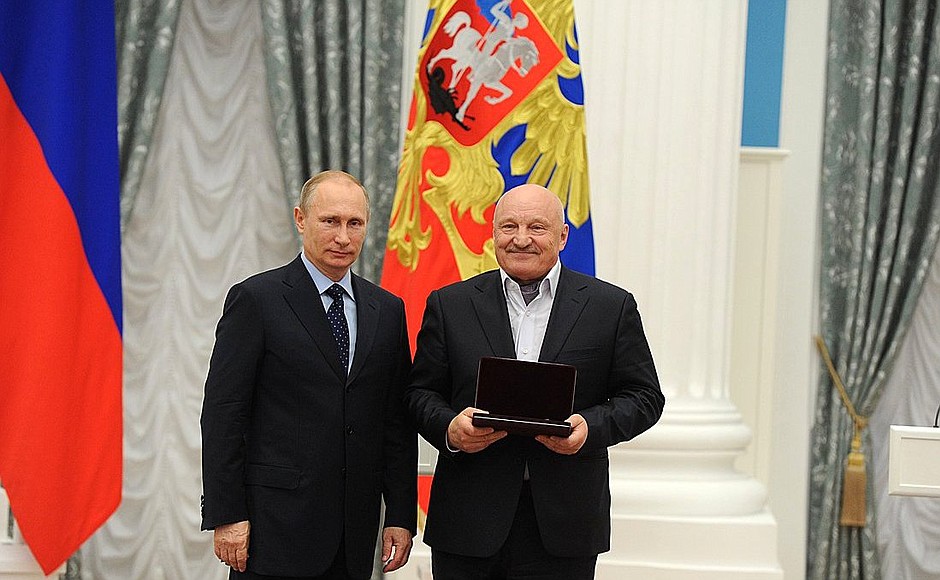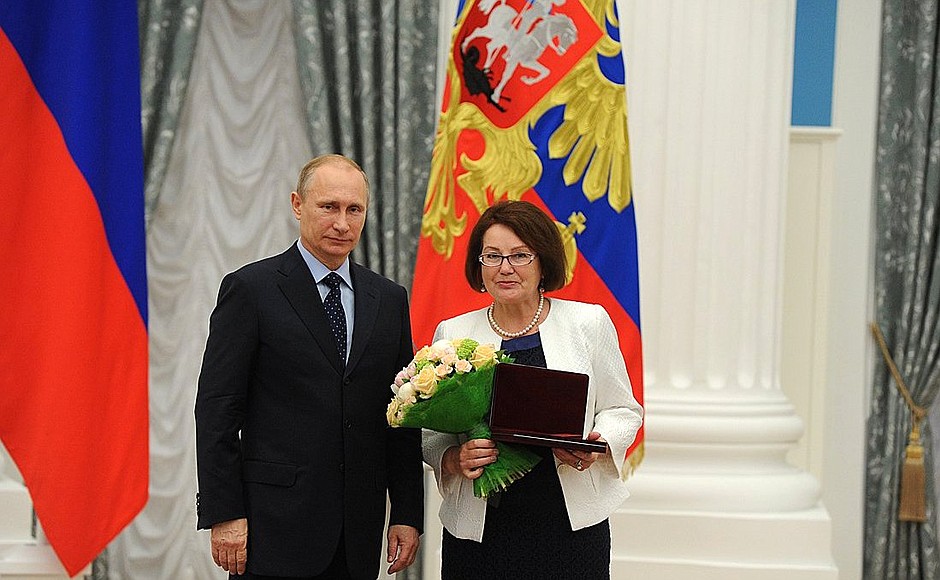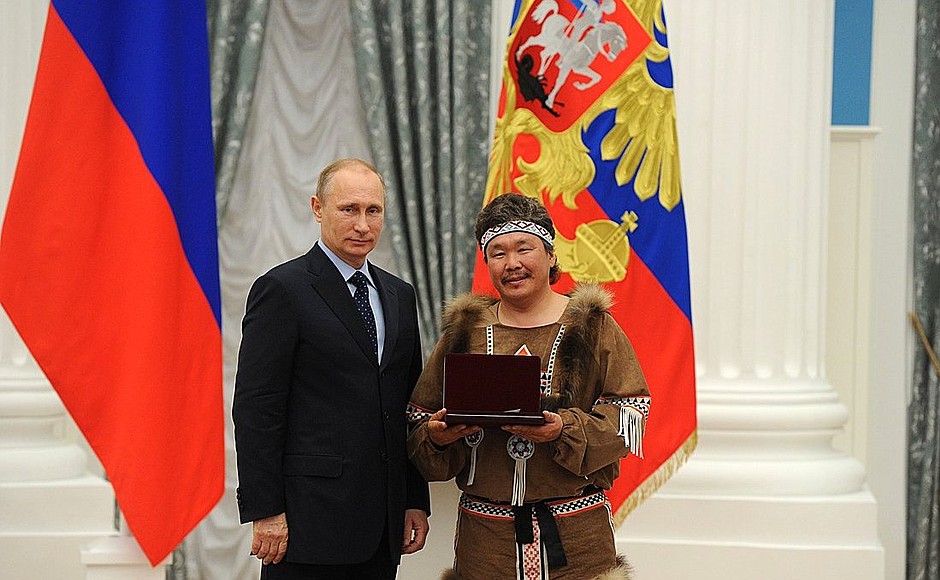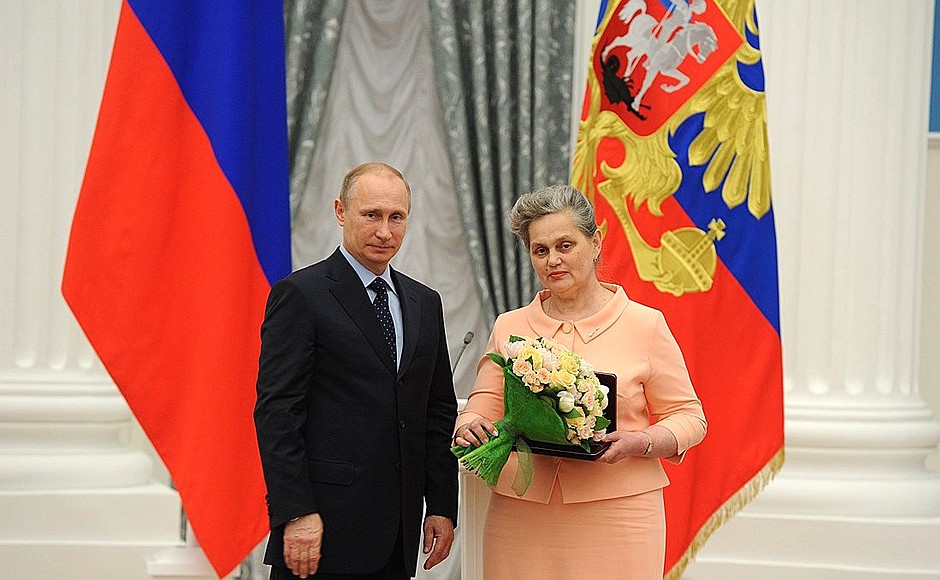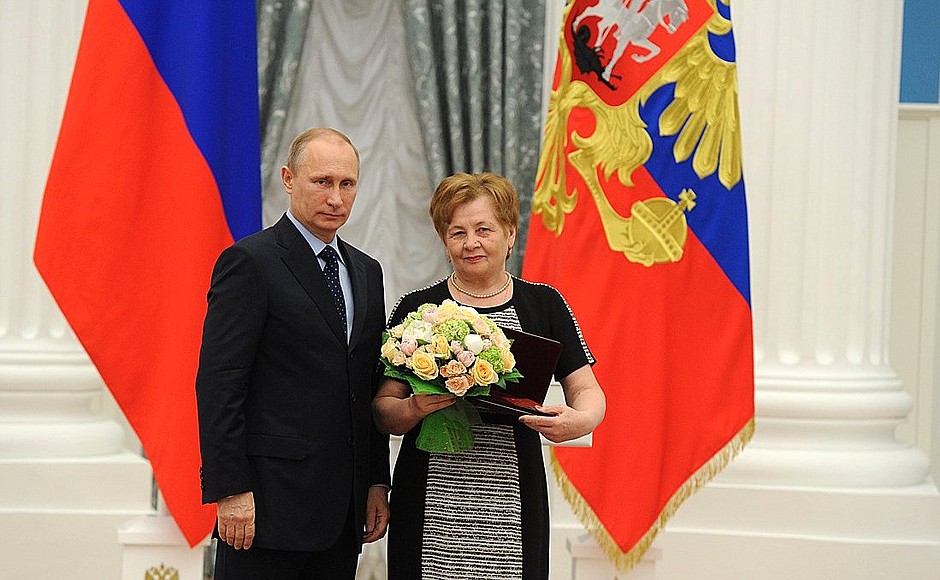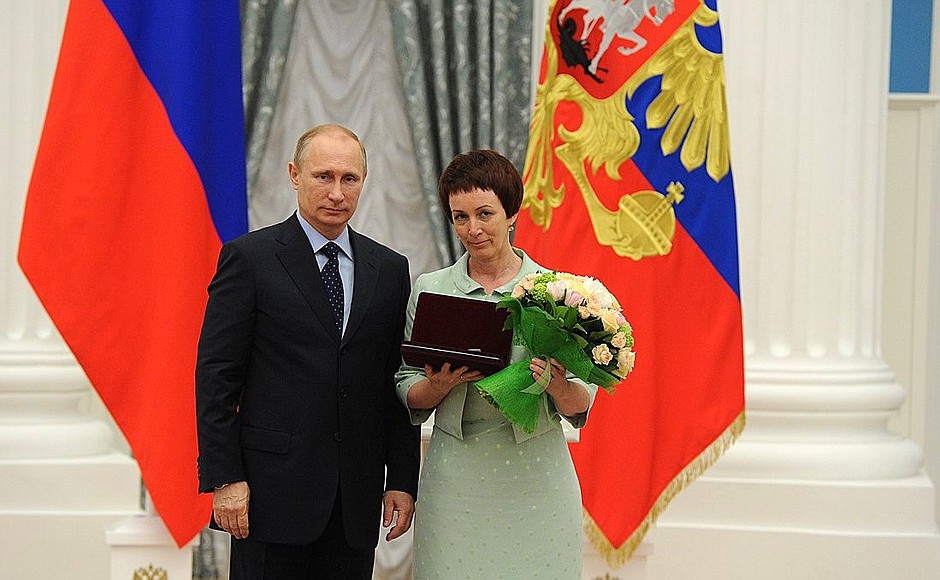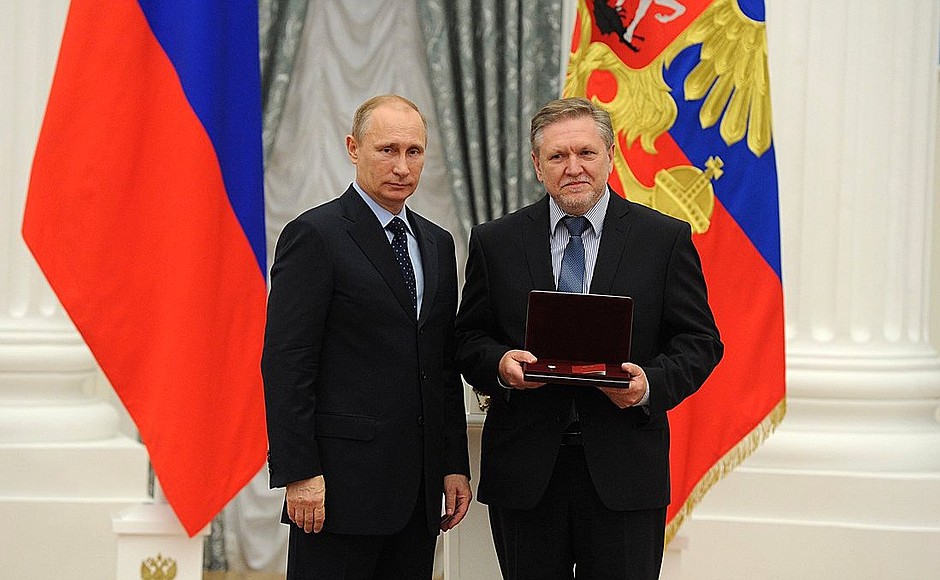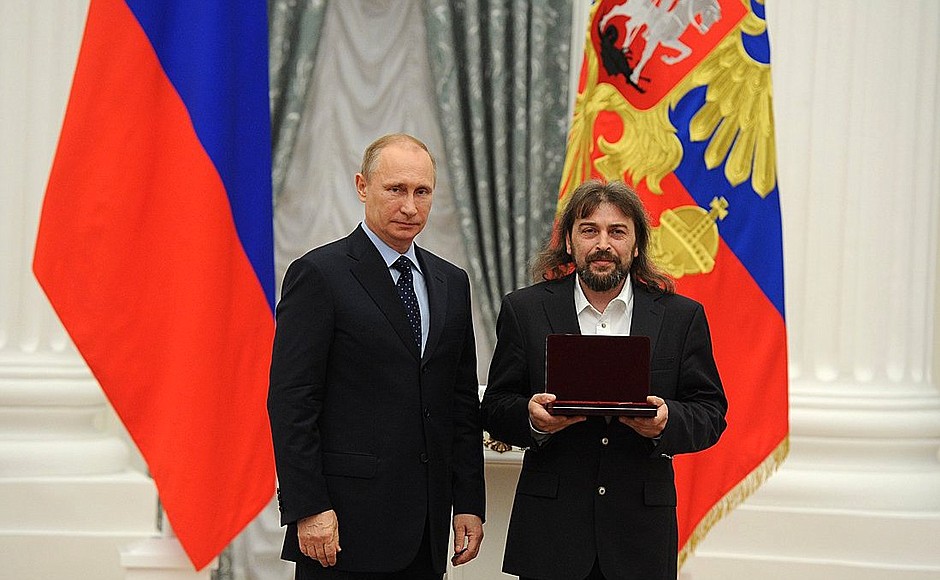President of Russia Vladimir Putin: Good afternoon, friends,
First of all, I offer you my sincere congratulations on being awarded these high state decorations. It is symbolic that today’s ceremony is taking place in 2014, the Year of Culture, and that here at the Kremlin we are recognising the achievements of those who have dedicated their entire lives to serving culture.
Present here today are architects and artists, writers, musicians, singers and actors. You are all distinguished not just by your particular creative gifts but by a deep awareness of the importance of your work for our country and society and for each Russian citizen.
As the specialists explain, the word ‘culture’ shares the same root as ‘cultivation’. I believe this is the case, and that culture does indeed have its roots in the concepts of creation, development and education. You perform this lofty mission exceptionally well, affirming in our society the values of learning, humanism, creative work and patriotism. You each make your memorable contribution to our cultural environment’s quality development and in this way have an enormous impact on shaping the way of life, outlook and perception of the world of millions of our people, and you have a particularly big impact on our young people’s education of course.
I am genuinely delighted to see that those receiving decorations include teachers at arts-related universities and institutes, children’s centres and arts schools, people who are cultivating our future creative talent and passing on to them their artistic experience and aesthetic sense.
Museum employees, restorers and craftsmen in folk arts and crafts also make a particular contribution to our country’s culture. You preserve and build on our historical and cultural heritage. Your names are generally not well known to the broader public, but the work that you do has tremendous importance for developing Russian culture’s traditions and strengthening its continuity and wealth.
The recipients of decorations today include famous actors, directors and performers. Your creative talent has won wide recognition in society. Millions of people here know and love you. People such as Natalya Gvozdikova, Yelena Tsyplakova and Nikolai Chindyaikin are in no need of an introduction. They fully deserve the title of National Artist of Russia.
Each of you has your own road to success, but you all achieved personal victories and skill of the highest level, and that inner freedom that always distinguishes people from the creative professions and is the basis for your unique and unforgettable attainments and for your constant and active participation in our country’s life.
Now, when we are in the process of putting together the Basic Principles of State Cultural Policy, these qualities are particularly needed. Our aim is to create a public environment in which a person’s level of cultural development becomes a condition for their successful social, professional and moral establishment in life. You, the people involved in culture, literature and the arts, have a huge role to play in carrying out this task.
The draft document has already been presented for public discussion. I am sure that you, my friends, will also take a useful and active part in this discussion.
Once more, I congratulate you sincerely on these decorations and thank you for your work. Let me wish you success and new creative achievements.
Thank you very much for your attention.
<…>
Friends, I would like to once again sincerely congratulate you: you, your creative teams and your loved ones.
It is gratifying that the people decorated today and those present at the ceremony include workers in culture, the arts, literature from all over our vast, enormous Motherland: the Far East, Siberia, the Urals, the south and the north of our nation, and the west of the Russian Federation, including small towns. This is so important! After all, you fully understand that when the art and culture of smaller ethnic groups is injected into the great Russian culture and all this is in constant, on-going reciprocity – that is the enormous power of our state overall and our culture in particular. This is an enormous power that is hard to even imagine.
We certainly have many debts to culture overall, and particularly to the culture and literature of smaller ethnic groups, because unfortunately, there is no systemic work in this area, even though we need it – to support culture overall, and the cultures of smaller ethnic groups in particular. All this is extremely valuable. I recall a few years ago, in one of my first trips to Yakutia – it was entirely business-related, administrative work – during dinner in a traditional pavilion, my local colleagues, various officials, suddenly said, “Shall we sing?” And I said, “Sure, let’s sing.” Truthfully, I was expecting some sort of cacophony. But when they started singing, I opened my eyes and ears: it was breath-taking. I even thought, “Maybe I’m in Italy?” I looked, but these were Yakuts, who didn’t really resemble Italians. And I was really surprised by the purity of their performance, the notes and the melodies. And we can make an enormous, countless number of such discoveries. We are an amazingly talented people – or peoples of the Russian Federation, uniting into one enormous nation-wide family, a single nation.
There are, of course, some blunders. For example, theatre critics are not in our official list of professions. This has serious consequences. I understand that this has to do with pension legislation and many other purely administrative, day-to-day matters. I think this was the result – or rather, not the result, it happened after Ilf and Petrov, when they mocked a music critic who had previously worked as a policeman somewhere in Kiev, I think; so they probably decided to get rid of theatre critics too. I promise you that all this will be restored, and justice will prevail.
Thank you all very much.
